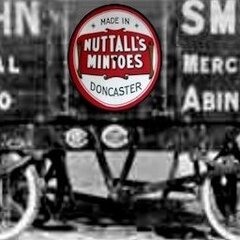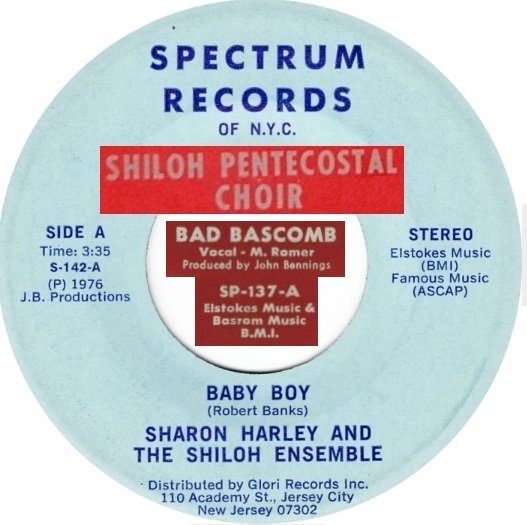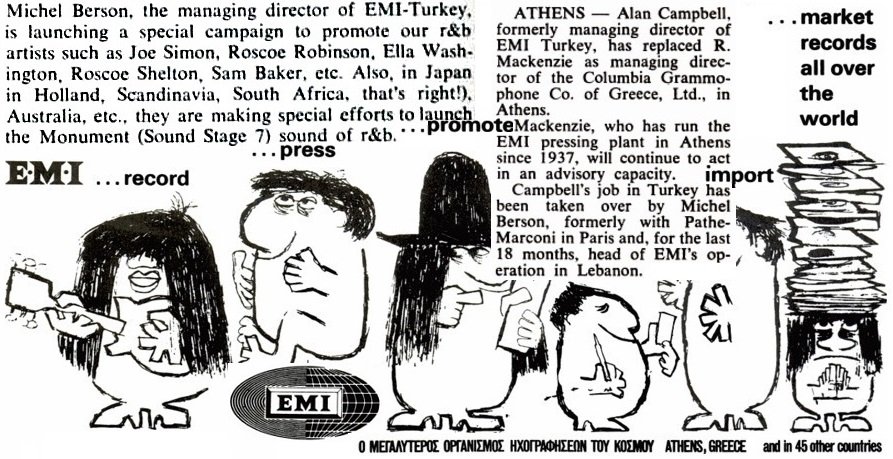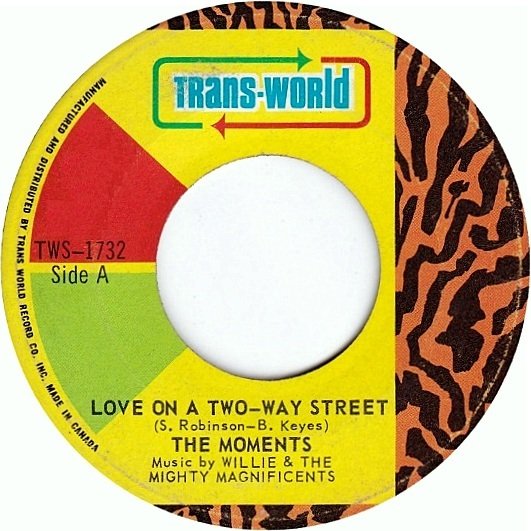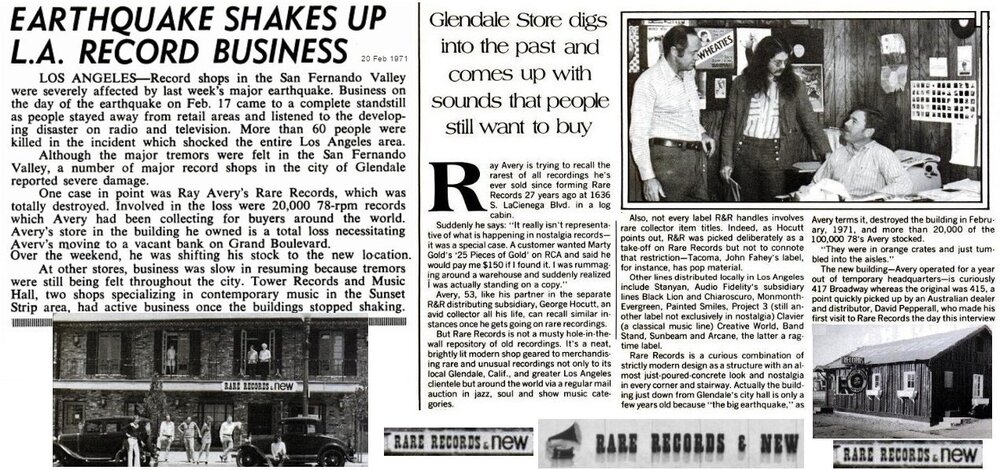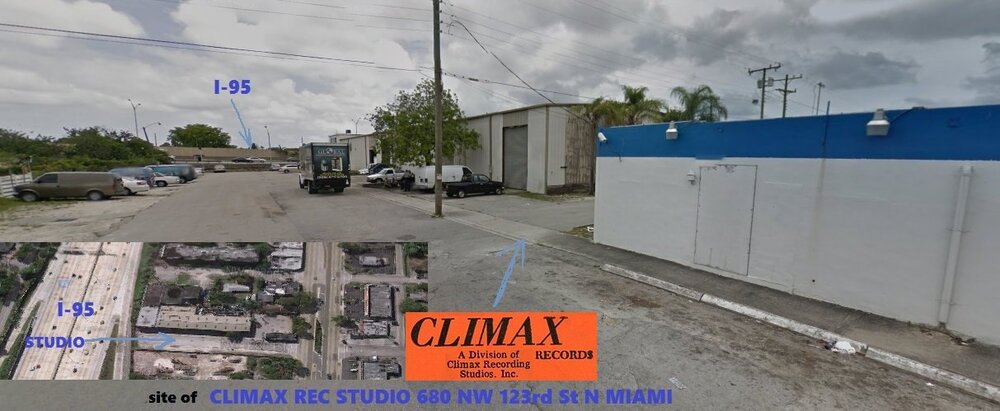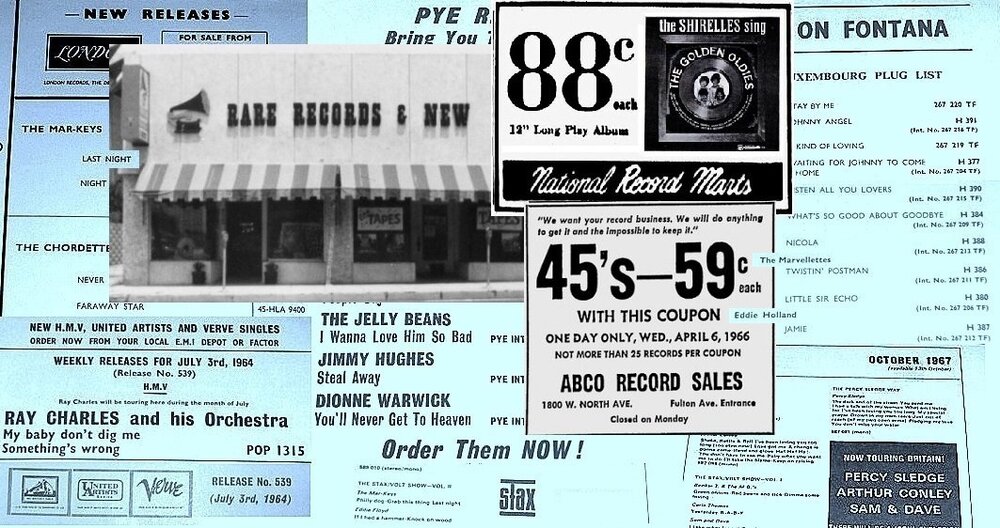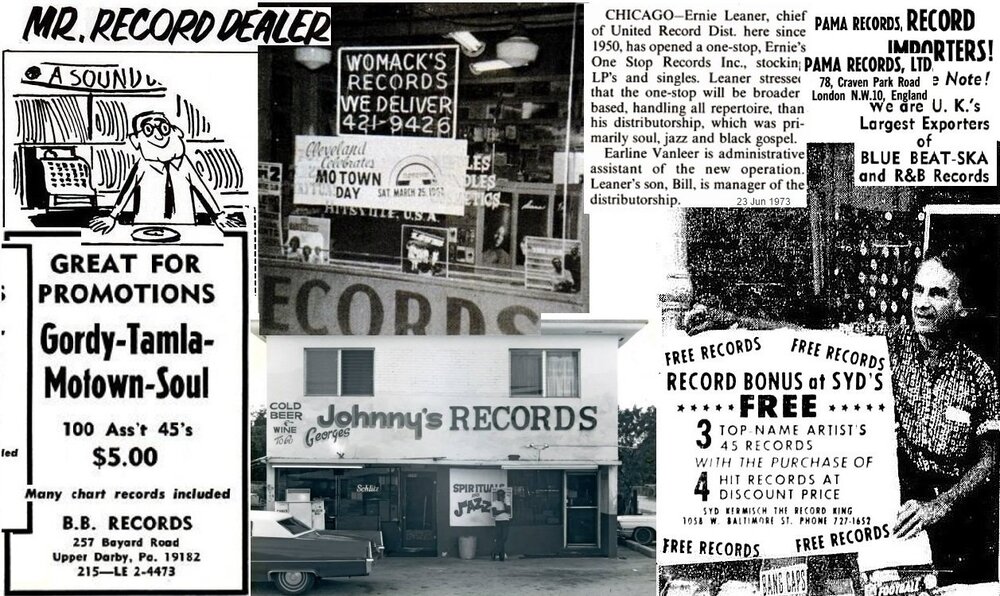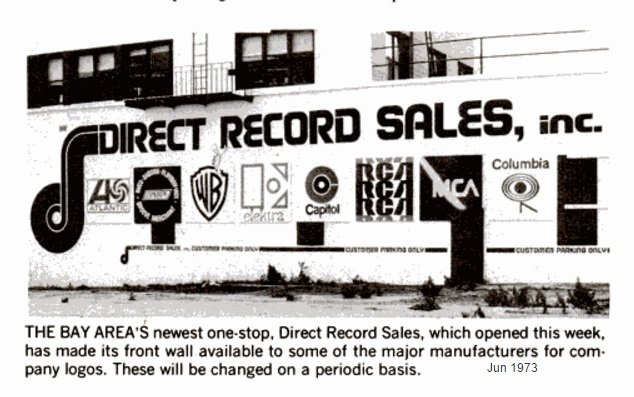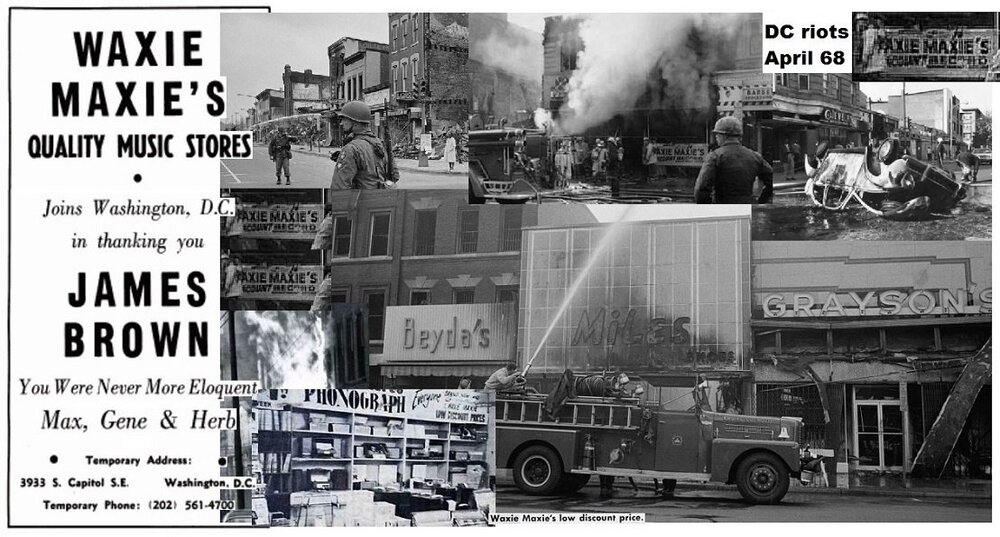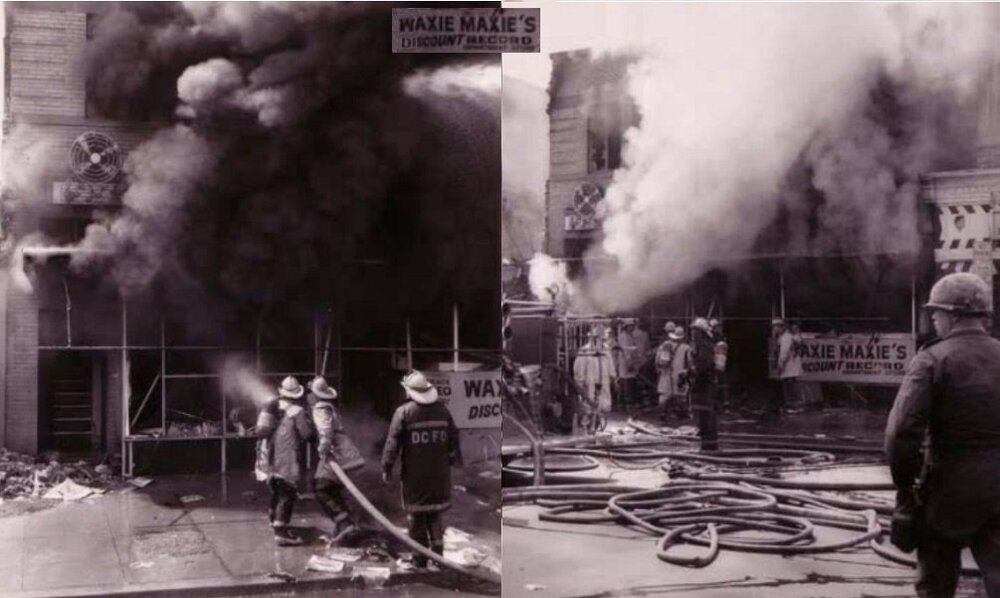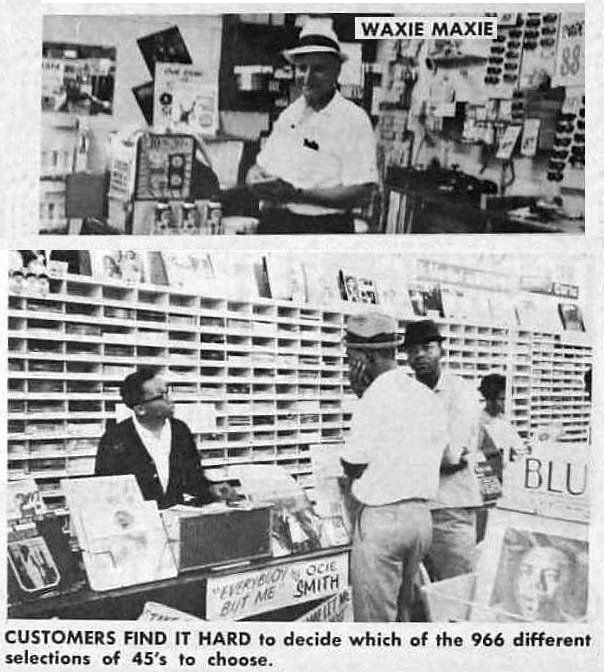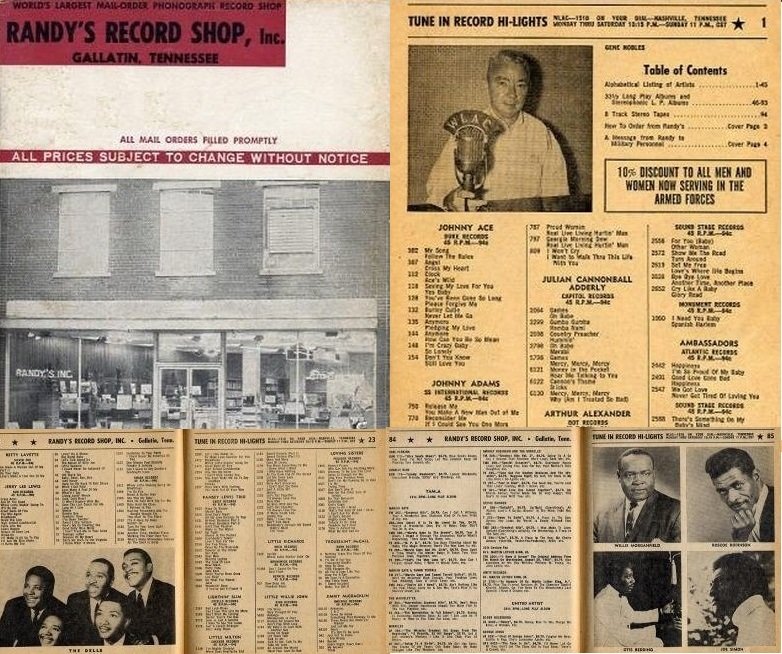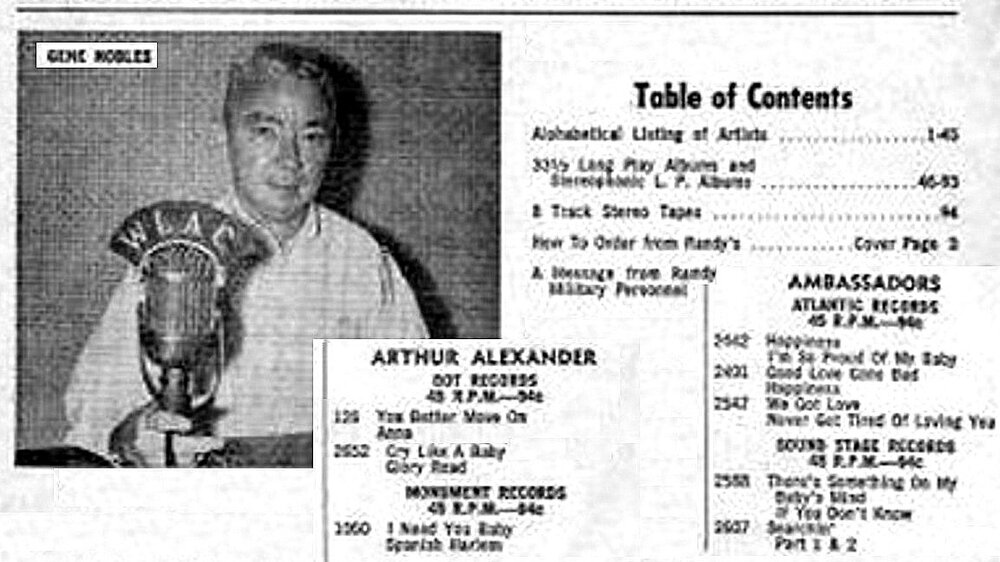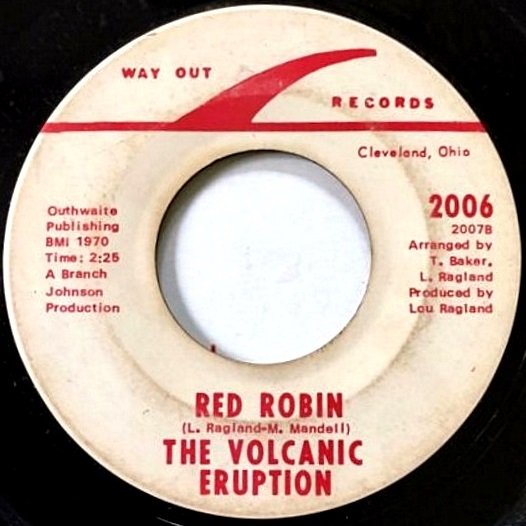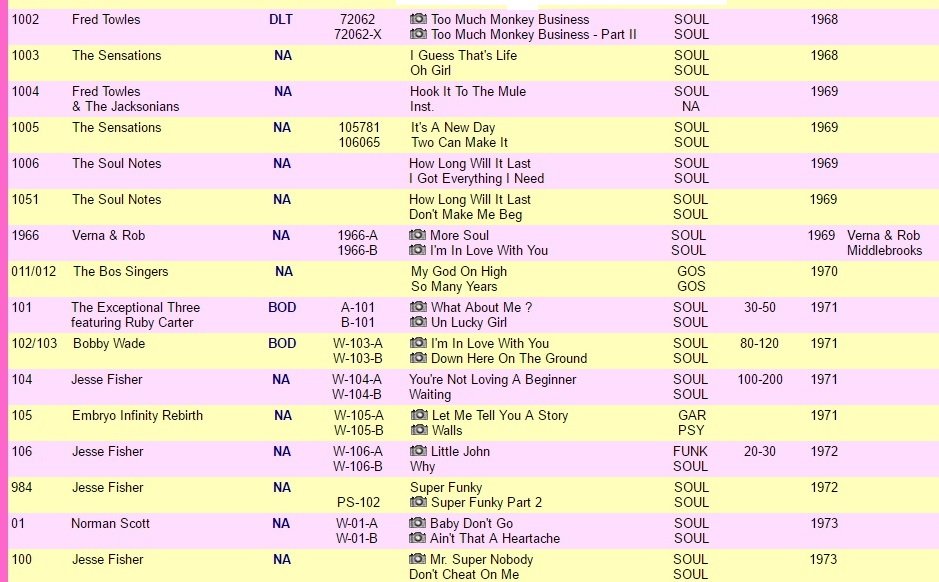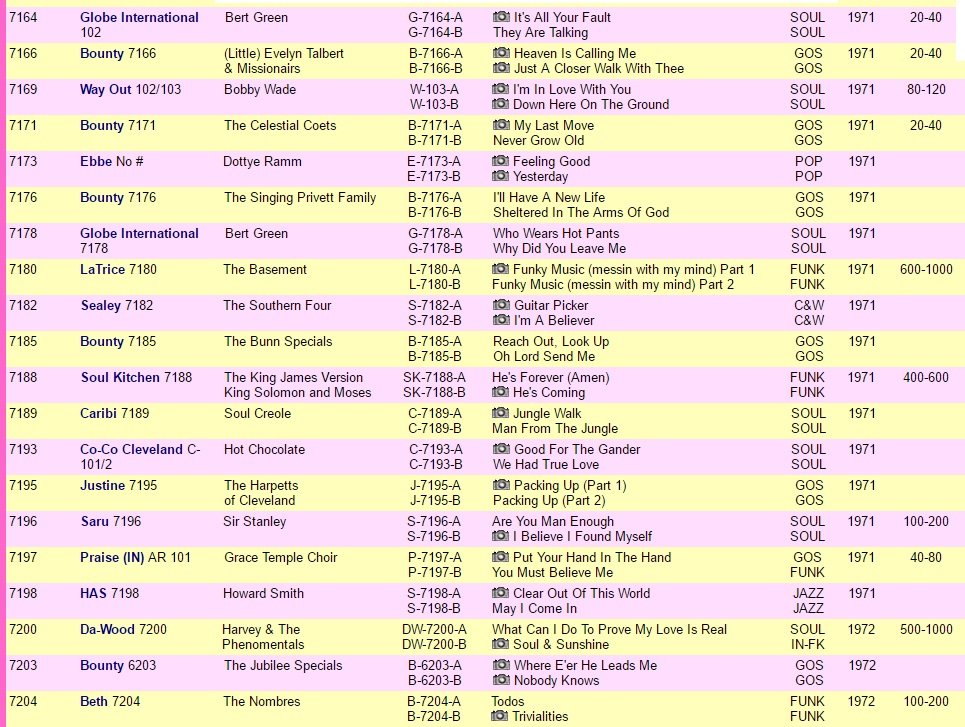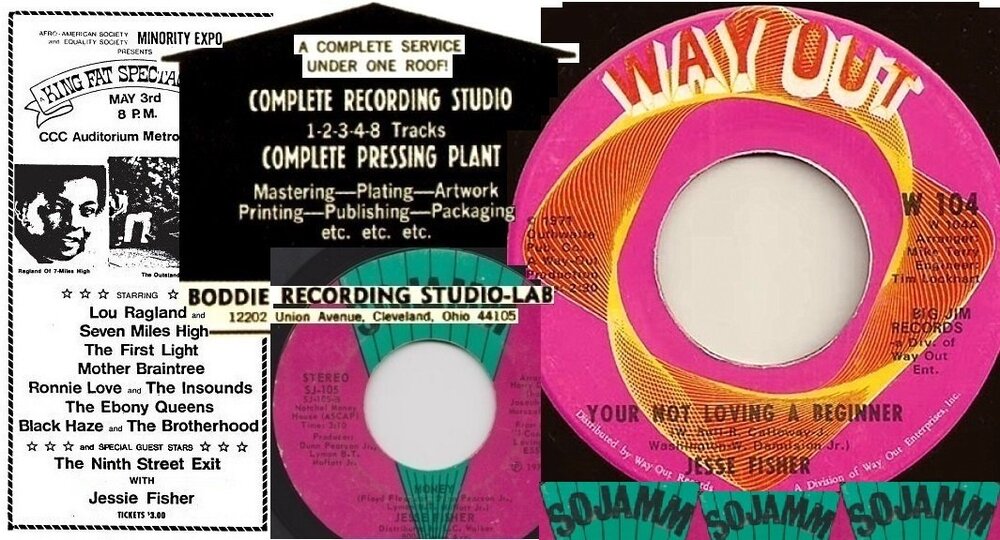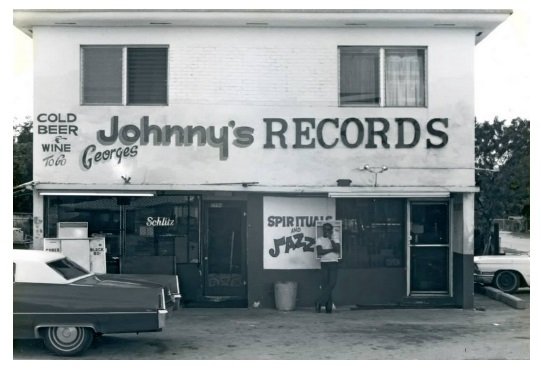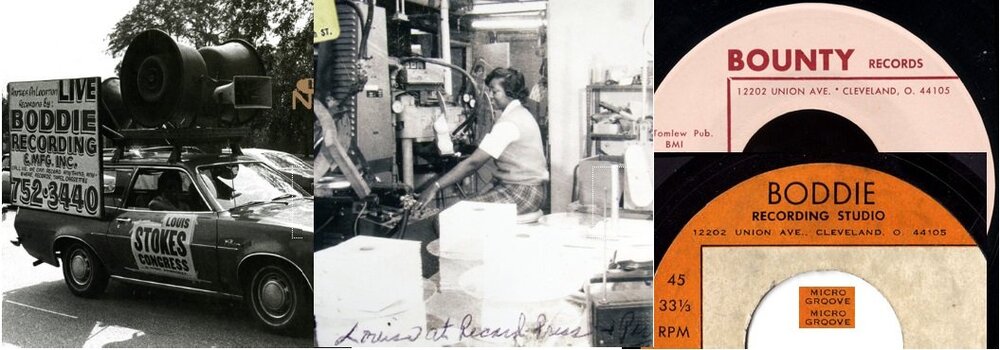Everything posted by Roburt
-
Spectrum Records - New York
Spectrum #142 ...... BTW, He's still registered with BMI & the address above seems to be current ....
-
Spectrum Records - New York
It's a pity I didn't ask Hoagy Lands about his work with John Bennings when he was over here for the Cleggy Weekender. Ady / Dougie were a bit concerned for Hoagy that weekend as he wasn't in the best frame of mind or health. So I was taken along to chat with him & travel with him to the venue. We chatted about lots of things related to his music career but I never knew to ask him about John B.
-
Spectrum Records - New York
John Benning started out as a singer, first in gospel & then in the R&B field. He recorded a gospel 45 for Savoy in 1958 & a secular 45 for Clock in 59. In the late 60's, he was operating Fun City Records of 1674 Broadway, NY, they released an Eddie Long 45. He obviously also had some sort of tie up with Paramount Records in the early to mid 70's. He wrote lots of songs and worked with the likes of Teacho Wilshire & Robert Banks. He seemed to have a long standing relationship with the Shilot Pentecostal Church which was based in many US locations but John seemed to be linked with their Brooklyn & New Jersey churches. I'd bet that Lily Fields came out of the gospel world where John had met her & that Lily Fields was not her real name (just a stage / recording name). John also worked with Bad Bascomb for a number of years. BB was really jazz funk bass player Wilbur Bascomb. He played (on records) with the likes of Bobbi Humphrey, Melvin Sparks, Marlena Shaw, the Joneses, Roy Ayers, Luther (LVD), Pretty Purdie, the Tymes, Idris Muhammad, Herbie Mann, Major Harris, Don Downing, George Benson & many, many more. Spectrum #142 was Sharon Harley & Shilot Ensemble singing Robert Bank's song "Baby Boy".
-
EMI Exporting Records to USA
Seems that in the summer of 68, EMI's main man in Turkey decided to give a big promotional push to SS7 material in that country. No doubt some of the soul 45's released there would have been pressed up in neighbouring Greece (where EMI had a long established pressing plant in Athens). Anyone here got any Greece / Turkish (or even Lebanese) EMI related SS7 / Monument 45's from this period ??
-
45 Sleeves Website
You're right there Derek. I used to post a lot of stuff on Dave Flynn's 'Soul Talk' site. Did my research on numerous subjects & posted the stuff up on his goodly site. Course, I didn't make copies of much of the info I posted there, just gathered the info on scraps of paper, collated it & posted it up. Lost loads of useful info when the site was discontinued (lots of scans out of old publications like Billboard, US mags & newspapers + other sources).
-
Occasions Canadian 45 - What Label ?
Those damn silly Canadians. Seems that shortly after the label put out a Moments 45 (1970), they stopped releasing US sourced product.
-
The record stores back in the 70s
I (like many Brits) used to buy (by mail order) from Ray Avery's Rare Records in Glendale (LA). I had orders outstanding when his shop was hit by a big earthquake in 71.
-
Why Did 60's Soul Strongholds Implode in 70s ?
The I-95 in Nth Miami didn't get this place .... the Climax Recording Studio, NW 123rd St ..... it was only yards from the highway though. The studio must have utilised an old building that had fallen vacant due to loss of local residents or the noise / disruption caused by a major highway being so close (plus all the east-west streets in the area had been severed by the I-95 and so were now cul-de-sacs). The studio was set up here in 1970 and moved on to a new location after 1974. It must have been a little indie set up and it had it's own record label at times .... a Jeb Stuart 45 escaped on Climax Records in 1971 ....
-
The record stores back in the 70s
-
The record stores back in the 70s
-
The record stores back in the 70s
-
The record stores back in the 70s
Waxie Maxie's in DC after the arson attack that followed MLK's murder .... and in earlier times (1964) ....
-
The record stores back in the 70s
I used to get Randy's Record Catalogue sent from the States in the late 60's / early 70's ..... always a good read ....
-
Which is the most complete Motown record?
This is of course a great rekkid .... BUT .... for those Brits around & into soul back in Autumn 1965, the hit version that we heard on the radio everyday was Otis Redding's take on the song. So I always have had a soft spot for the Stax version.
-
Sly, Slick & Wicked on Bad Boys 1st & 2nd issue
Well there's a Facebook page for the group's leader Sonny Daye, so someone could easily ask on there what the full story is. My GUESS is that Sonny Daye kept the original stampers (as he owned / ran the record label) and simply organised a re-press when the opportunity to sell extra copies presented itself. How many releases were there on Bad Boy in all; 4 x 45's & an LP ?? Some info on the group, it's members & a later record of theirs on this youtube clip ..... seems that there were 2 versions of the group in the recent past (& that's ignoring the more famous Cleveland group with the same name) ........
-
Tonite I Have Mostly Been ... Speakin To Lou Ragland
A new recording by Lou & the Ink Spots ..... based on a famous old tune ........
-
jesse fisher your not loving a beginner
But Boddies has been involved in the discussion throughout this thread ... so how does putting up info on Boddie's work muddy the waters .... if anything it shows exactly what Boddie was doing in this period. Loads of the Way Out data just states NA meaning info not available .... I have a load of Way Out releases but ain't got the time to pull everyone out and examine the run out grooves with a magnifying glass.
-
jesse fisher your not loving a beginner
I'm not completely wrong ... where in the above do I say that any copies of BEGINNER 45's were pressed at Boddies ???? I have GUESSED that a stamper may have been made by Boddie BUT that's different to saying any 45's were pressed by Boddies. Lou R told me that Way Out practice, if they wanted quick acetate copies, was to run straight round to Boddies (but that was when Lou was still involved at Way Out 67 to 69). Lou was also involved on two 1970 Way releases (Bos Singers & Volcanic Eruption) but I think he had gone by then.
-
jesse fisher your not loving a beginner
Some info from https://www.45rpmrecords.com/ .......... So the two Way Out releases before BEGINNER were both Plated & Pressed by / at Boddies .... seems to me that some copies of BEGINNER would come from master lacquers (that become the A or B side stampers used to press up the actual records) made at Boddies (but guessing here) ... .... 1st table is Way Out release info .... 2nd table is Boddie's Pressing Info ..... after early 72 (when 2nd table ends) just about every record pressed by Boddies was for his own releases (i.e. Bounty, Soul Kitchen, Soul Mine releases OR indie gospel recordings that Boddie would have done the whole thing for -- recording, plating, stamping, pressing up limited numbers of each 45 made). Boddies numbering system was quite easy to follow, 1st 2 numbers relate to the year ... 70, 71, 72, etc. .... so Day-Wood #6901 Imperial Wonders "Just A Dream" was job 1 in 1969 .... .... AND .... J&W Records #M-7028 Bro David Watt "Alright" was job 28 in 1970 hence #7028 other numbers after that (in say 7169 so the 69) must be the job number. BUT there are missing numbers (7168) but these could have been cuts laid down that never made it to the stamper / pressing stage.
-
Tonite I Have Mostly Been ... Speakin To Lou Ragland
Could well have been but I have no knowledge of it at all (I was out of the NS loop for much of the 70's which is when I guess this occurred).
-
Tonite I Have Mostly Been ... Speakin To Lou Ragland
Lots of postings on another current thread about a Jessie Fisher Way Out 45 & the different incarnations of this 45 ........... .... so I thought I'd reflect that on here ..... it was Lou who came up with the Way Out red & yellow swirl label design though he never got anything for his troubles. Lou always has had a strong artistic side & has had pieces exhibited in Vegas art shows down the years. ... Jessie Fisher was of course the brother of Jive Five member Richard Fisher ..... .... (some info on him here https://www.sirshambling.com/artists_2012/F/richard_fisher/index.php ) ... both brothers unfortunately passed at an early age though I don't have info on the reasons for each's untimely deaths. After his popular Way Out release, Jessie had another biggie out via the Way Out family, the 2nd 45 escaping on the So Jamm label. ..... https://www.youtube.com/watch?v=NnQMfbNKOVs This later effort (a 1974 release that made mention of an LP to follow) was cut by Jessie under the supervision of Dunn Pearson, the then leader of 9th Street Exit. This isn't too surprising as at the time Jessie was doing live shows with 9th St Exit as his backing band .....
-
US TV Documentary - Florida: Tuesday Sept 23rd
More on the documentary & Deep City ...... https://www.miamiherald.com/entertainment/article2205765.html https://www.knightfoundation.org/blogs/knightblog/2014/3/13/deep-city-story-miamis-motown/ https://www.miaminewtimes.com/music/willie-clarke-on-the-rise-of-deep-city-records-6476762 This thread links in with the old thread on .... Tropical Records, Miami (Frank Seay, Etc) All these establishments & recording artists were based in the same area (Overtown) of Miami.
-
US TV Documentary - Florida: Tuesday Sept 23rd
This documentary will be aired in Florida on WLRN in late September .... unfortunately we don't head out there till a bit later .... "Deep City: The Birth of the Miami Sound" made festival rounds across the nation, showcasing at SXSW in Austin, Texas, the Cleveland International Film Festival and the Miami International Film Festival. https://wlrn.org/post/new-documentary-explores-birth-miamis-motown https://wlrn.org/
-
Which is the most complete Motown record?
Always gonna be a purely subjective viewpoint on this. For me it's the Isley's "This Old Heart of Mine" just coz it's a great Motown dancer that means so much to ME personally (hearing it as a youngish lad, the impact it had on me & my love for soul that's been with me for 50 years up till now). It ain't my fave soul record (or even fave soul dancer) but it is my fave Motown cut.
-
jesse fisher your not loving a beginner
Numero bought up everything at Boddies after Thomas Boddie died. They put out a good release that contained the best of the stuff they found when they bought it. The Boddies ran their outfit (recording, mastering, pressing of 45's & LPs) as a pure business concern. They didn't seem too bothered about focusing on the creative side of putting out records, that was left to the artists. They offered a service that made them money & it was the passage of time that did them in. Why update & install better equipment when you could make money utilising the old stuff (with no upgrade expenses to be financed). But with time, the quality of their product was overtaken by competitors & only guys with less money to spend came to make use of their facilities. If you went to the added expense of hiring / using a high tech studio & decent musicians, why then go to an outdated facility to turn your master tapes into records. As those records would truly not be High Fidelity singles but lower grade items with more muffled sound quality. The Numero release utilised a few photos that still existed of earlier events that occurred during the Boddie's long recording adventure ........... Numero's 'Boddies acetate 45 box' (3 x 7" singles featuring previously unreleased recordings) got some stick when it was issued but I liked the raw feeling of the cuts on display & even bought 2 sets as I'm a bit of a Cleveland soul nut.

